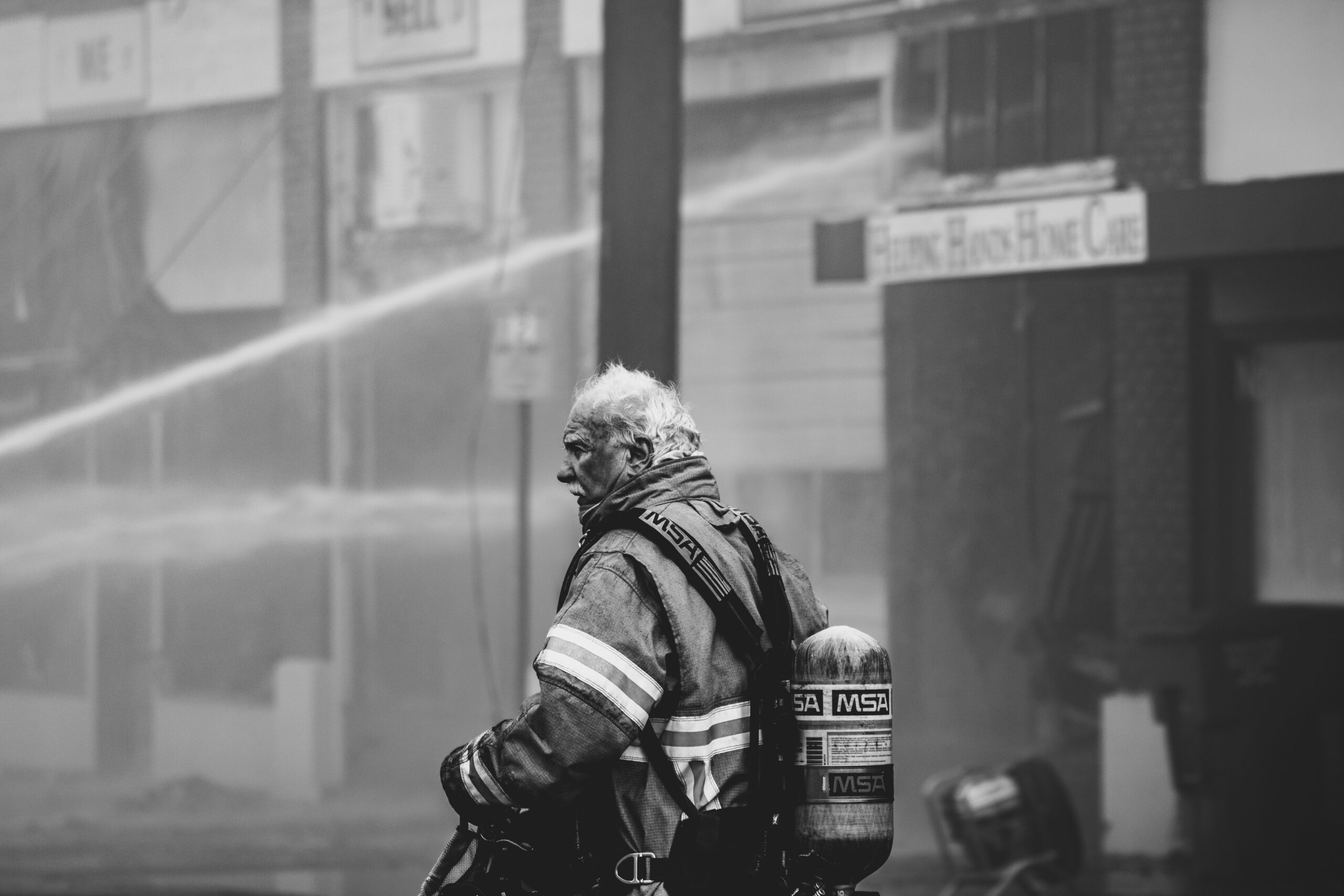Importance of Renter Insurance
Renter Insurance provides protection for belongings as well as financial security. It covers stolen or damaged possessions, liability if someone is hurt on your property, and even extra living expenses if you must move due to damage. With this coverage, you’ll have peace of mind.
Your landlord’s insurance only covers the building’s structure and liabilities. Without renter’s insurance, you could pay for losses due to theft or disasters.
Nowadays, many landlords require renters to have insurance before signing a lease. It’s important to know which policy meets your needs, as there are various options.
My friend recently moved without insurance. Her neighbor caused water damage, so she had to live elsewhere while repairs were made. She paid out-of-pocket, but if she had a policy with temporary living expenses, she could have avoided these costs. Don’t make the same mistake! Get protected with renters’ insurance today! Don’t let a burglar ruin your day; get insurance to protect and stay on top of life.
Coverage for Personal Possessions
Policies for Personal Property Protection offer great benefits to renters. In case of theft, destruction, or mishap, the tenant’s insurance will cover the cost of repairing/replacing the items. Clothes, electronics, furniture and jewelry are all covered by the policy. Documenting belongings in detail, along with photographic evidence and receipts, makes the filing process easier.
Unconventional damages like natural disasters such as floods and earthquakes can also be covered under renter insurance plans. It is wise to consider specific civil liability coverage options when getting renter’s insurance plans, as neglect claims can cause severe financial damage without protection.
Tenant policies also include funds for relocation if the insured property is rendered uninhabitable. According to ARP, 60% of tenants don’t have renters’ insurance, leaving them vulnerable to great financial loss in unforeseen events. Renting without liability protection is like skydiving without a parachute – it can only lead to disaster.
Liability Protection for Renters
Renters need liability protection to shield themselves against any potential lawsuits or claims. It can cover legal fees, judgments and medical bills if anyone is hurt in your rental premises. Plus, it offers personal property and dwelling coverage. That way, you’ll have a safety net when something goes wrong.
Though, not many renters have insurance. Bankrate recently surveyed that only 41% had it. You don’t know when disaster will hit, so having extra living expenses coverage can always be helpful – like a secret stash of chocolate!
Additional Living Expenses Coverage
In case of a disaster, housing disruption can get pricey. Insuring yourself with Coverage for Living Expenses shields you from this financial instability. It’ll reimburse your expenses and extra living costs, such as rent, hotel stays, and meals, due to displacement.
House fires, hurricanes, or even carbon monoxide poisoning can make people look for other places to stay rapidly. The Coverage for Living Expenses protects renters from any unexpected issues that could lead to spending more money. It helps tenants pay for temporary places to stay if a covered loss stops their property from being livable.
Moreover, Coverage for Living Expenses can be better with more personalized options available. These personalized choices include storing belongings and transportation of personal stuff while away until your primary residence is fixed.
Pro Tip: Don’t assume your landlord’s insurance will pay for any damages caused by a disaster; get coverage for living expenses before to protect yourself from possible financial difficulties.
Mother Nature may be unpredictable, but with renter insurance, you can be ready for her wildest outbursts.
Protection against Natural Disasters
Natural disasters are a real threat to renters. Damage to property and possessions could be costly. A renter policy could help to cover such costs.
In the event of a natural disaster, insurance with coverage is invaluable. Floods, tornadoes, earthquakes and more can all cause destruction. Having coverage in place can reduce the financial strain of replacing or repairing.
Renters’ insurance also provides protection against theft and fire damage. This ensures policyholders receive compensation for their loss.
Having coverage has many benefits. For instance, if your home becomes uninhabitable, the policy can cover additional living expenses. This could help you obtain temporary accommodation.
Research from the NAIC shows that only 37% of US renters carry rental insurance. Renter insurance premiums are usually much lower than homeowner policies and provide similar protection.
If you’re a fan of ‘Ocean’s Eleven’, consider renting insurance your own personal Danny Ocean. It can protect you from theft and vandalism with style.
Protection against Theft and Vandalism
Protect your property with renter insurance! It offers coverage for theft, vandalism, and more. Benefits include:
- Replacement or repair of stolen items.
- Protection against vandalism, like graffiti and broken windows.
- Covers items taken from vehicles.
- Comes in handy if a break-in forces you to move out – covers hotels, etc.
- High-value items such as jewelry and electronics are covered.
- Provides financial assistance towards repairs and replacements.
Insurance for renters also provides peace of mind. However, it’s important to note that jewelry is not always covered. For extra security, keep receipts of valuable items and properly document them. Lastly, save money by bundling up your insurance policies!
Benefits of Bundling Insurance Policies
Do you know you can reap multiple rewards by combining your insurance policies? It’s not only simpler to manage, but can also save time and cash. Here’s what you get:
- Less premiums
- Better rates
- An in-depth policy review from one insurer
- A single contact for customer services and claims
- An opportunity to increase coverage when needed
- Simplified paperwork and billing.
Bundling offers more than just discounts. Beneficiaries can safeguard their assets with a range of policies such as renters, homeowners, auto, and life insurance.
However, the availability of these options depends on the licensing requirements of a state and the insurer’s policies. So, make sure that the coverage aligns with your needs before you sign up with a new insurer.
Pro Tip: Don’t be scared to ask for discounts or bonuses when bundling policies. These are often available if you meet certain criteria. Who needs a gym subscription when installing safety features in your rental property can give you a workout plus a discount on your renter insurance?
Discounts for Installing Safety Features
Installing safety features can save you money on renter insurance! Benefits include:
- Smoke alarms & sprinklers: Could save up to 15% on premiums
- Deadbolts & door locks: Secure locks reduce rates by 5%
- Window locks: 2-5% less on premiums
- Theft alarms or security systems: Proximity to police/fire station can reduce rates
- Water damage sensors: Less risk of flooding, lower premiums
- Sprinkler system upgrade: 7% off annual rates
Plus, if you don’t smoke, check with your provider for a smoke-free discount. Safety upgrades protect valuable possessions and may avoid expensive liability claims. Like a family who was out camping when their neighbor noticed smoke. Fortunately, they had smoke detectors installed, or things could have been worse. Choose the right renter insurance – better than walking around barefoot when disaster strikes.
Considerations when Choosing Renter Insurance
When renting property, one must always consider getting renter insurance. It safeguards your belongings against accidents and natural disasters. Here are some points to consider when selecting renter insurance:
- Policy Coverage – Look closely if the policy gives the necessary coverage. No hidden clauses.
- Premiums – Compare premiums and benefits to get one within budget.
- Deductibles – Higher deductibles mean lower premiums. Check deductibles before picking a plan.
- Safety Features – Having safety items like fire extinguishers or smoke alarms could lower premiums.
- Liability Protection – Make sure the policy has sufficient liability coverage for potential lawsuits.
- Provider Reputation – Reviews and customer feedback will help you pick a reliable provider.
Every policy varies depending on tenant details and needs. Consider getting extra coverage like pet damage or identity protection. Don’t forget renter insurance. Invest in it and have peace of mind in case of an unfortunate event. Make a wise decision when choosing a policy. Don’t wait until it’s too late. Getting the right quote can seem like a gamble. But do it right and you’ll be safe!
Comparing Renter Insurance Quotes
Comparison shopping is essential when looking for renter insurance. Many quotes exist, so you must take time to find the best option at a price that fits your budget. Here’s a table with factors to consider when comparing quotes:
| Coverage Type | Deductible | Monthly Premiums |
|---|---|---|
| Personal Property | $500 | $25 |
| Liability | $1000 | $20 |
| Medical Payments Coverage | $5000 | Inclusive |
The costs and coverages may vary between providers. Don’t forget to check if certain items are excluded from coverage. Jewelry and electronics, for example, may need extra coverage.
Only 41% of renters have renters insurance, according to Insurance Information Institute. Have peace of mind and financial protection – compare renter insurance quotes now. In the end, it’s better to be prepared.
Conclusion
Having renter insurance has big advantages. It provides coverage for a range of incidents. Not only does it protect your belongings, but also provides liability insurance and extra living expenses if your home becomes uninhabitable. It could save you thousands of dollars!
Plus, renter insurance is not overly expensive. The cost usually falls between $15 and $30 a month. Considering the peace of mind it gives, it’s worth it.
Though, not all incidents are covered by renter insurance. Earthquakes and floods usually require separate policies. So, it’s important to read the terms of the policy to understand what is and isn’t covered.
A 2016 survey by the National Association of Insurance Commissioners showed that only 41% of renters had renter insurance. This means that most renters are vulnerable to financial losses if something bad happens.
Renter Insurance Frequently Asked Questions
Q: What exactly does renter insurance cover?
A: Renter insurance generally covers your personal property, liability in case someone is injured in your rental, and additional living expenses if your rental becomes uninhabitable due to a covered loss.
Q: Is renter insurance worth the cost?
A: Absolutely. The cost is typically very affordable, and the coverage it provides can save you thousands of dollars in the event of a loss.
Q: Will renter insurance cover my roommate’s belongings?
A: No, renter insurance only covers the belongings of the person who purchased the policy. If your roommate wants coverage, they will need to purchase their own policy.
Q: What amount of coverage should I get?
A: The amount of coverage you need will depend on the value of your personal property. It’s important to take an inventory of your belongings and determine their worth to determine the appropriate amount of coverage.
Q: What happens if I accidentally cause damage to my rental unit?
A: Renter insurance includes liability coverage, which would cover the cost of damages that you cause to your rental unit or any surrounding units.
Q: Do I have to purchase renter insurance if it’s not required by my landlord?
A: While it’s not legally required, it’s highly recommended as it provides important protection for your personal property and rental liability.






